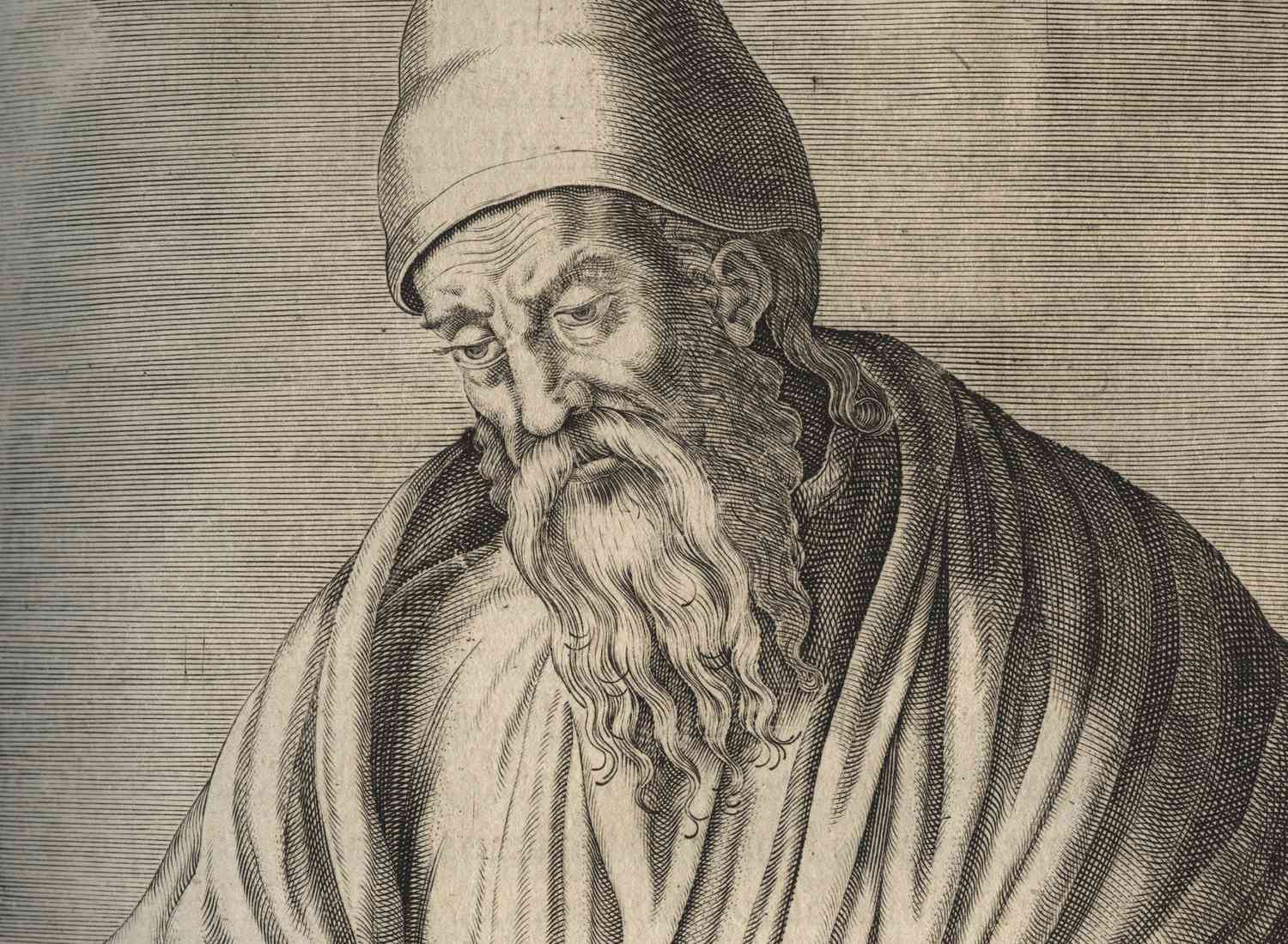
Euclid of Alexandria, often referred to as the “Father of Geometry,” was a renowned Greek mathematician who lived in the 3rd century BCE. His work, “Elements,” is considered one of the most influential mathematical texts ever written and has had a significant impact on the development of mathematics as we know it today.
Intriguingly, Euclid’s life remains shrouded in mystery, with little information available about his personal life. However, his mathematical legacy speaks volumes about his intelligence and innovation. This article delves into 16 intriguing facts about Euclid of Alexandria, shedding light on his remarkable accomplishments, his contributions to the field of mathematics, and the enduring influence of his work on scholars and mathematicians throughout the centuries.
Key Takeaways:
- Euclid of Alexandria, the “Father of Geometry,” revolutionized mathematics with his logical approach and emphasis on proof, inspiring generations of mathematicians to build upon his foundational work.
- Euclid’s “Elements,” a compendium of mathematical knowledge, remains one of the oldest and most influential works in the history of mathematics, shaping the field as we know it today.
Euclid of Alexandria was a Greek mathematician.
Euclid of Alexandria, often referred to as the “Father of Geometry,” was a prominent mathematician who lived in ancient Greece during the 3rd century BC.
Euclid’s most famous work is “Elements.”
Elements” is a compendium of mathematical knowledge consisting of thirteen books, covering a wide range of subjects such as geometry, number theory, and algebra.
“Elements” is one of the oldest mathematical texts still in existence.
Euclid’s “Elements” has withstood the test of time and is considered one of the most influential works in the history of mathematics.
Euclid’s geometry axioms are the foundation of modern mathematics.
Euclid’s system of axioms provided a rigorous and logical framework for the study of geometry, which has served as the basis for mathematical reasoning for centuries.
Euclid’s work was highly influential during the Renaissance.
The rediscovery and translation of Euclid’s “Elements” during the Renaissance brought about a resurgence of interest in mathematics and had a profound impact on the development of scientific thought.
Euclid’s fifth postulate, also known as the Parallel Postulate, sparked centuries of debate.
Euclid’s fifth postulate states that if a line intersects two other lines and forms interior angles on the same side that sum to less than 180 degrees, then the two lines will eventually intersect.
Euclid’s work laid the foundation for non-Euclidean geometries.
While Euclidean geometry is still widely studied and applied, the exploration of non-Euclidean geometries, where the Parallel Postulate does not hold, has expanded our understanding of the subject.
Euclid’s approach to mathematics emphasized proof and logical reasoning.
Euclid’s emphasis on rigorous proofs revolutionized the field of mathematics, setting a standard for logical reasoning that is still followed today.
Euclid’s influence extended beyond mathematics.
His logical approach and emphasis on proof influenced other fields, including philosophy and scientific inquiry.
Euclid’s work inspired generations of mathematicians.
Euclid’s writings served as a fundamental textbook for students of mathematics for centuries, inspiring generations of mathematicians to build upon his foundational work.
Euclid’s birth and death dates are not known with certainty.
While the exact dates of Euclid’s birth and death are uncertain, it is believed that he lived during the 4th and 3rd centuries BC.
Euclid’s mathematical notation was not standardized.
Euclid’s “Elements” did not use the algebraic symbols and notation commonly used in modern mathematics. Instead, he relied on geometric diagrams and verbal descriptions.
Euclid’s work was translated into Arabic during the Islamic Golden Age.
Euclid’s “Elements” was translated into Arabic, further spreading his mathematical ideas and contributing to the advancements made by scholars during the Islamic Golden Age.
Euclid’s work was preserved in Byzantium.
While many ancient texts were lost during the fall of the Roman Empire, Euclid’s “Elements” survived thanks to its translation and preservation in Byzantium (now Istanbul).
Euclid’s “Elements” consists of over 400 propositions.
Within the pages of “Elements,” Euclid establishes a series of propositions and theorems, building upon each one to develop a comprehensive understanding of geometry.
Euclid’s impact on mathematics continues to this day.
The principles and theories established by Euclid remain fundamental to the study of mathematics, influencing countless mathematicians and shaping the field as we know it.
Conclusion
Euclid of Alexandria was truly a remarkable figure in the field of mathematics. His contributions to geometry and his establishment of Euclidean geometry have had a lasting impact on the world of mathematics and beyond. From his famous work, “Elements,” to his foundational principles and theorems, Euclid’s legacy continues to influence the study of mathematics and shape our understanding of the universe.Through his pursuit of knowledge, Euclid paved the way for future mathematicians, inspiring generations with his logical reasoning and meticulous approach to problem-solving. His work has been studied and admired for over two millennia, making him one of the most celebrated mathematicians of all time.Whether it’s the Pythagorean theorem or the concept of parallel lines, Euclid’s ideas continue to shape the way we approach mathematics and its applications in various fields. His teachings have become an integral part of education systems worldwide, ensuring that his legacy remains alive and his wisdom continues to be passed down through the generations.In conclusion, Euclid of Alexandria’s achievements and contributions to mathematics are nothing short of extraordinary. His dedication, brilliance, and enduring principles have solidified his place as a pioneering mathematician whose impact can still be felt today.
FAQs
Q: Who was Euclid of Alexandria?
A: Euclid of Alexandria was a prominent mathematician who lived in ancient Greece. He was known for his work in geometry and is famously remembered for his book, “Elements,” which is considered one of the most influential mathematical works ever written.
Q: What is Euclidean geometry?
A: Euclidean geometry is a branch of mathematics founded by Euclid. It is centered around the study of plane geometry, focusing on concepts such as points, lines, angles, and shapes. Euclidean geometry is based on a set of axioms and postulates that form the foundation for geometric proofs.
Q: What are some of Euclid’s notable contributions?
A: Euclid’s major contributions include the formulation of the five postulates of Euclidean geometry, the Pythagorean theorem, the concept of parallel lines, and the method of geometric proofs. His work laid the groundwork for the study of geometry for centuries to come.
Q: How has Euclid’s work influenced modern mathematics?
A: Euclid’s principles and theorems continue to be a fundamental part of mathematical education. His logical approach to problem-solving and the rigorous nature of his proofs have shaped the way mathematicians think and reason. Many of his concepts and methods are still widely applicable and used in various branches of mathematics today.
Q: Is Euclid still relevant today?
A: Absolutely! Euclid’s work forms the basis for understanding geometry, and his contributions have had a lasting impact on mathematics and various other fields. Even though his work dates back to ancient times, the principles he established are still taught and applied in education and scientific research today.
Euclid's groundbreaking work in geometry has inspired countless mathematicians, but there's still more to explore. Dive into fascinating geometry facts that showcase this field's depth and complexity. For a closer look at Euclid's lasting impact, check out our article on Euclidean geometry, which revolutionized mathematical thinking. If you're curious about other types of elements, don't miss our astonishing facts about transition elements – they'll give you a whole new perspective on the periodic table.
Was this page helpful?
Our commitment to delivering trustworthy and engaging content is at the heart of what we do. Each fact on our site is contributed by real users like you, bringing a wealth of diverse insights and information. To ensure the highest standards of accuracy and reliability, our dedicated editors meticulously review each submission. This process guarantees that the facts we share are not only fascinating but also credible. Trust in our commitment to quality and authenticity as you explore and learn with us.


